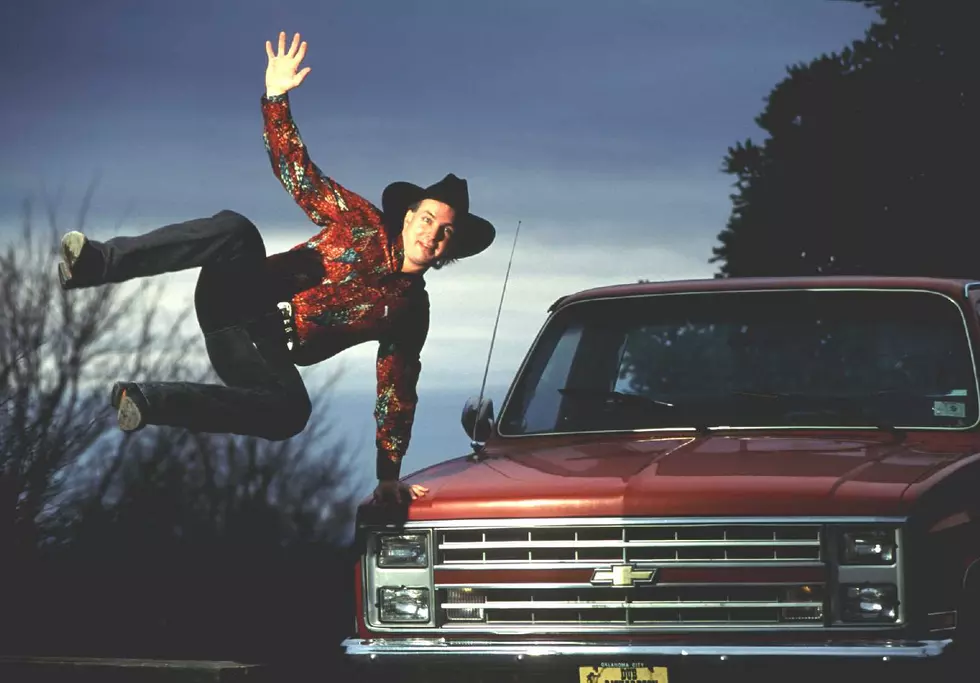
The Circle Will Be Unbroken: Reflections on Ken Burns’ ‘Country Music’
Throughout Country Music, Ken Burns and his team trace the genre's ebbs and flows, its moves toward rock 'n' roll (or more polished sounds) and back again. The idea of country music, they show viewers, is — and has always been, in various ways — vast and deep. The genre and its most successful and iconic artists are ambitious, but grounded; as Episode 8's titular saying goes, they don't get above their raisin'.
"In all things country music, we see a response," explains Old Crow Medicine Show member Ketch Secor. "It's always reminding itself who it is, and the old ghosts are always rising up and refusing to be cast aside."
There are always country artists pushing the genre's boundaries, and those who are re-centering it. Sometimes that's neo-traditionalists such as Randy Travis popularizing a vintage sound just as the Queen-influenced Garth Brooks is emerging; other times, as happened with Marty Stuart and Ricky Skaggs following the death of bluegrass pioneer Bill Monroe, the artists doing the pushing and re-centering are one and the same.
"There's a tension, always," says Skaggs, who found himself returning to his roots in traditional bluegrass after his mentor Monroe's death in 1996. "God doesn't exalt pride, buddy, he exalts humility."
Even Johnny Cash found ways to evolve, especially after Columbia Records stopped paying him much attention, then dropped him from their roster. His American Recordings series, launched in the mid-1990s with famed producer Rick Rubin, features award-winning work, including that incredible cover of Nine Inch Nails' "Hurt." Perhaps the thought of pairing one of the most iconic names in country music with a hip-hop producer was worthy of some pearl-clutching at first, but those works are some of Cash's finest, bar none, and set Rubin on a course that led to work with the Dixie Chicks, the Avett Brothers and more.
"If you look at [country music] over the last 90 years now ... It wouldn't be one thing. It wouldn't be anywhere close to one thing. It's been a million different things and a million different ways. And that's, to me, the way it should be," muses Vince Gill. "Your heart's gonna make it come out of you a different way than it is me. That's the beauty of it. I don't think i would enjoy country music if it stayed the same. It's not supposed to."
Lauded songwriter Tom T. Hall notes during Country Music's final episode, "They're not doing brain surgery like they used to, either." Still, there are tenets of country music that will always be constant: It's a genre that prizes the lyric above all else. Its artists value heartfelt fan interaction. And its leaders are always going to keep their eyes on both the past and the future. As Emmylou Harris says, "You can't go back ... but we mustn't forget where we came from, because it's going to make the music that we make in the future better."
"There'll be songs that should've been hits that never were; there'll be songs that are hits that shouldn't have been. There'll be people that you'll fall in love with that'll be gone in three weeks, or after the next record, and there'll be stars that come and get inside of your heart and stay with you for the rest of your life," reflects Marty Stuart. "Country music has something for everybody, and it's inside the song, it's inside the characters. It's really colorful in here. I invite you in."
Just as country music is cyclical, Country Music is, too: The documentary's final episode opens with Dolly Parton — a major star by the mid-1980s — performing "Mule Skinner Blues," a song first made famous by one of the genre's original artists, Jimmie Rodgers. It closes with, naturally, "Will the Circle Be Unbroken," originally by country music's other first act, the Carter Family. In the minutes in between, Burns and company show that, yeah, the genre is going to be just fine.
All eight episodes of Country Music are available on the PBS video app and PBS.org.
THIS CONTENT BROUGHT TO YOU IN PARTNERSHIP WITH COUNTRY MUSIC ON PBS.
More From Kicks 105






